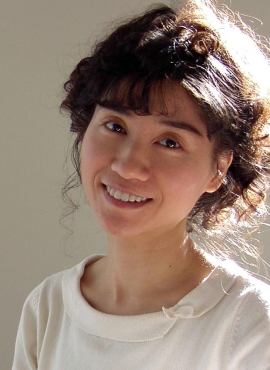Researcher Dr. Eva Lee joins Tim to discuss her work on the front lines in the battle against the opioid epidemic. Dr. Lee is a professor in the School of Industrial and Systems Engineering at Georgia Tech, and Director of the Center for Operations Research in Medicine and HealthCare, and her not-so-secret weapons are math, data and analytics.

In this episode, we talk with Dr. Lee about her work in trying to tackle challenging problems associated with the nation’s opioid epidemic and how perceptions in the medical community is one key area of focus.
This bonus episode is a break from our normal pattern at the Shaping Opinion podcast. Usually, we talk about people, events or things that have found a place in history that truly have shaped the way we think. The nation’s opioid epidemic is different, however. The opioid epidemic is happening now. It’s not history.
Our perceptions of the seeming harmlessness of a painkiller or a cough medicine may lead us to choose comfort over temporary discomfort, which has the potential to lead to complications from taking opioids.
When we talked to Dr. Eva Lee, we learned that math can be used to identify patient care practices with the best outcomes, and that if those practices spread, society can start to take significant measures to counter the opioid epidemic.
Dr. Lee focused her research on the youngest and most vulnerable among us, babies. But not healthy babies. These are babies born with heart defects that typically begin their lives in the Intensive Care Unit and face serious surgeries in the first year of their lives.
They are prescribed opioids to alleviate their suffering. But where do we get to the point where the opioids can cause more problems than they solve? And most importantly, what can we learn from Dr. Lee’s research in this area to expand those lessons to children and adults so that the nation can form a more broad-based attack on the opioid epidemic?
Dr. Lee is a professor in the H. Milton Stewart School of Industrial and Systems Engineering at Georgia Tech, and she is Director of the Center for Operations Research in Medicine and HealthCare. She is also a Senior Research Professor at the Atlanta VA Medical Center.
She uses mathematical programming and large-scale computational algorithms to help medical and healthcare decision-making.
She tackles challenging problems in health systems and biomedicine by bringing a math perspective to healthcare, through systems modeling, algorithm and software design, and decision theory analysis.
This work creates a better understanding of what works based on data and analytics so that patient care guidelines across the country can be improved.
Dr. Lee was part of a team that was a finalist for a prestigious honor for this work. It is the Franz Edelman Award from the Institute for Operations Research and the Management Sciences (INFORMS).
We talked to Dr. Eva Lee about her research and what it means from actual health care practices, to doctor and patient perceptions.
Links
- Dr. Lee Bio (Georgia Tech)
- The Most Interesting Person in the O.R. World, INFORMS
- Pediatric Heart Network, Edelman Award Finalist, INFORMS
About this Episode’s Guest Dr. Eva Lee
 Eva K Lee is a professor in the H. Milton Stewart School of Industrial and Systems Engineering at Georgia Institute of Technology, and Director of the Center for Operations Research in Medicine and HealthCare. She is also a Senior Research Professor at the Atlanta VA Medical Center. Dr. Lee earned a Ph.D. at Rice University in the Department of Computational and Applied Mathematics, and received her undergraduate degree in Mathematics from Hong Kong Baptist University, where she graduated with Highest Distinction. Dr. Lee was awarded a NSF/NATO postdoctoral fellowship on Scientific Computing, and a postdoctoral fellowship from Konrad-Zuse-Zentrum Informationstechnik Berlin in 1995 for Parallel Computation.
Eva K Lee is a professor in the H. Milton Stewart School of Industrial and Systems Engineering at Georgia Institute of Technology, and Director of the Center for Operations Research in Medicine and HealthCare. She is also a Senior Research Professor at the Atlanta VA Medical Center. Dr. Lee earned a Ph.D. at Rice University in the Department of Computational and Applied Mathematics, and received her undergraduate degree in Mathematics from Hong Kong Baptist University, where she graduated with Highest Distinction. Dr. Lee was awarded a NSF/NATO postdoctoral fellowship on Scientific Computing, and a postdoctoral fellowship from Konrad-Zuse-Zentrum Informationstechnik Berlin in 1995 for Parallel Computation.
In 1996, she received the NSF Presidential Young Investigator Award for research on integer programming and parallel algorithms and their applications to medical diagnosis and cancer treatment. She was the first OR/IE recipient for the prestigious Whitaker Foundation Biomedical Grant for Young Investigators, awarded for her work on a novel approach for combining biological imaging and optimal treatment design for prostate cancer. In 2004, she was selected as one of the Extraordinary Women Engineers.
In 2005, she received the INFORMS Pierskalla award for research excellence in HealthCare and Management Science for her work on emergency response and planning, large-scale prophylaxis dispensing, and resource allocation for bioterrorism and infectious disease outbreaks. In 2006, she was chosen by the American Mathematical Society as the representative mathematician to speak and discuss individually with congressional leaders about her research advances in the medical and healthcare domain, and about the importance of mathematics in scientific advances. Together, Lee and Dr. Marco Zaider from Memorial Sloan-Kettering Cancer Center were named winners of the 2007 Franz Edelman award for their work on using operations research to advance cancer therapeutics.




